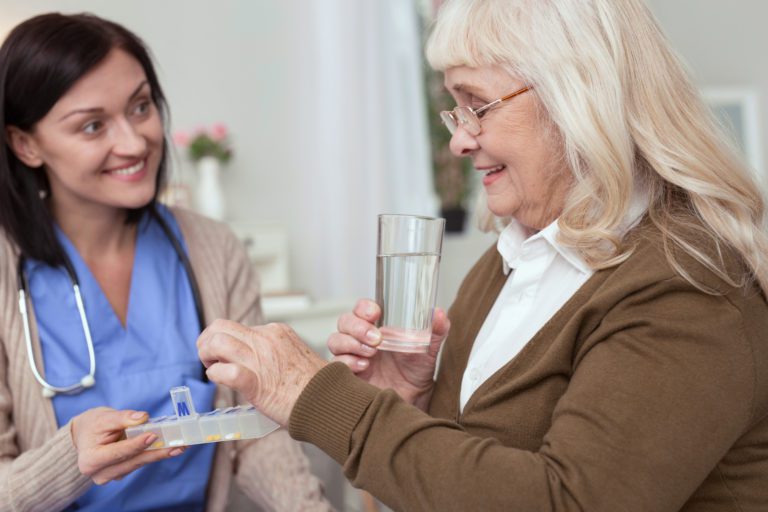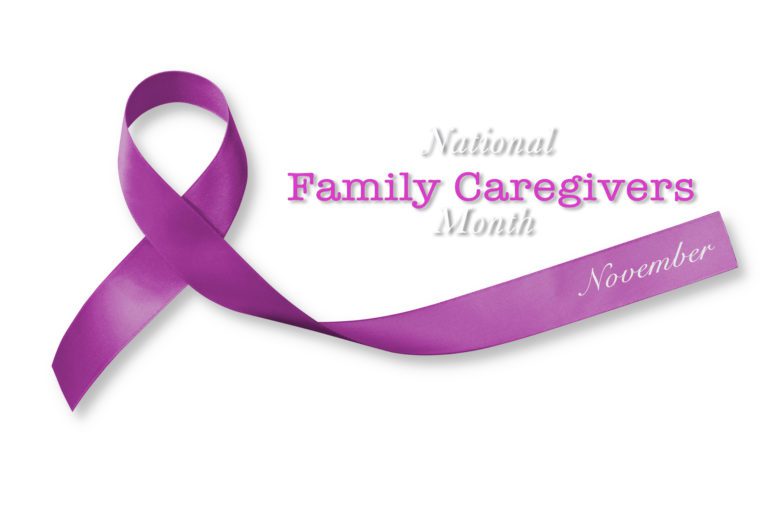It’s one of the most difficult, and potentially embarrassing issues seniors can face. As people age, their ability to control bladder and bowel functions may decrease for a variety of reasons. Sometimes, the reason is reversible (such as a urinary tract infection). Other times, the situation can’t be changed. If you’re providing care for a loved one with incontinence, you can take steps to minimize stress on both of you. These seven tips may help you cope. Managing Incontinence in Seniors: Tips and Strategies
Check with your loved one’s healthcare provider.
For all new cases of bladder or bowel incontinence, get a physical examination to see if the cause is treatable. Even though your loved one may not have symptoms other than incontinence, there could be an underlying medical condition causing the problem. If medical care resolves the incontinence issue, go back to your healthcare provider if it crops up again.
Always be prepared.
Pack a small tote bag with supplies such as incontinence briefs or pads, wipes, and even a change of clothes in case an accident happens when you’re out and about together. Don’t allow your loved one to become a hermit because of incontinence issues.
Wear clothes that are easy to get on and off (or not).
Slacks with an elastic waistband can be pulled down quickly, enabling your loved one to get on the toilet faster and possibly avoid an accident. And if you do have to help your loved one with cleanup, easy-off garments make it simpler for you to undress and re-dress them. On the other hand, people with dementia sometimes remove their clothes at inappropriate times and places. In that situation, you obviously would not want to dress your loved one in clothing that’s easy to remove.
Watch your loved one’s diet.
Some foods make both bladder and bowel incontinence worse. Avoid consuming caffeine (coffee, tea, some sodas), chocolate, spicy foods, and a lot of fresh or dried fruit.
Be empathetic.
Losing control of bodily functions ranks among the most stressful health issues, so approach the situation with patience and tact to ease your loved one’s anxiety. You may find it helps reduce your stress level as well.
Adopt a matter-of-fact approach.
Care Professionals use this technique to overcome a client’s shyness or embarrassment, and you can too. Use reassurance and a straightforward manner: “Oh, that’s too bad you had an accident, but don’t worry. It happens to a lot of people. Let me help you get cleaned up and into some dry, comfortable clothes.” If you find incontinence caregiving uncomfortable, you may have to fake this matter-of-fact attitude at first, and that’s OK. Pretty soon, you’ll find it comes very naturally.
Accept help.
Let’s face it: many caregivers who are willing to provide all kinds of help to a loved one draw the line when it comes to dealing with incontinence. It’s perfectly all right for you to set this caregiving boundary. But your loved one still needs to maintain personal hygiene, so don’t hesitate to call for reinforcements. Search for trained professionals who can help your loved one in a dignified and professional way.
Incontinence can be a challenging issue for even the most seasoned caregiver, and it’s a particularly common issue for seniors with Alzheimer’s disease or other dementias. Gentle encouragement and support will go a long way toward helping an aging loved one with this issue.
The mattress, the sofa, and the chairs should all be waterproofed.
Incontinence care involves a lot of cleaning up after accidents. Accidents not only cause a mess on your older adult’s clothing but also on their furniture, and it smells bad.
The washing machine is a convenient place to clean both clothing and bedding. However, it is stressful and tiring to try to clean and deodorize something that is not easily cleanable, such as a mattress or easy chair. This is understandable given the nature of the task.
Waterproofing the furniture that your elderly loved one uses the most will help you get ahead of the problem and make cleanup much simpler.
Gently use humor to ease tension and embarrassment
Both you and your older adult may experience stress as a result of the shame and embarrassment that incontinence can bring about.
Stress can be reduced by treating it like a regular aspect of life. Assure them that everything will be fine, then soberly proceed with the cleanup.
“Don’t worry, it happens to a lot of people,” you could remark. Let me assist you with getting dressed and cleaning up. How to manage incontinence in seniors
Gentle humor also works to ease tension after an accident. Find ways to chuckle at the ridiculous side of things while remaining courteous.
You may add, “Now we’ve got the perfect excuse to change into your blue pants,” while grinning. They’re among your favorite pairs, I see.”
Keep an incontinence care kit on hand
It is not true that incontinence prevents you and your older adult companion from leaving the house.
To ensure that you are always prepared in the event of an accident, fill a tote bag with the necessary items for cleaning up the mess.
Choosing clothing that is simple to wash and alter
Update your clothes to help prevent accidents and make incontinence care easier. Managing Incontinence in Seniors: Tips and Strategies
Garments that are difficult to put on and take off may be contributing to accidents. Additionally, they make it challenging to clean up afterward.
For instance, it is quicker and simpler to pull down pants with an elastic waistband than pants with a traditional zip fly. That will enable your senior to use the restroom more quickly and even prevent an accident.
Additionally, elastic waistbands are considerably simpler to control when helping someone get dressed or undressed.
Numerous items of apparel sold by well-known retailers will fit. Make it a point to steer clear of garments that have an excessive number of closures (no button-fly pants!), clasps that are tough to use, zippers that are challenging, or openings that are too small. Managing Incontinence in Seniors: Tips and Strategies






